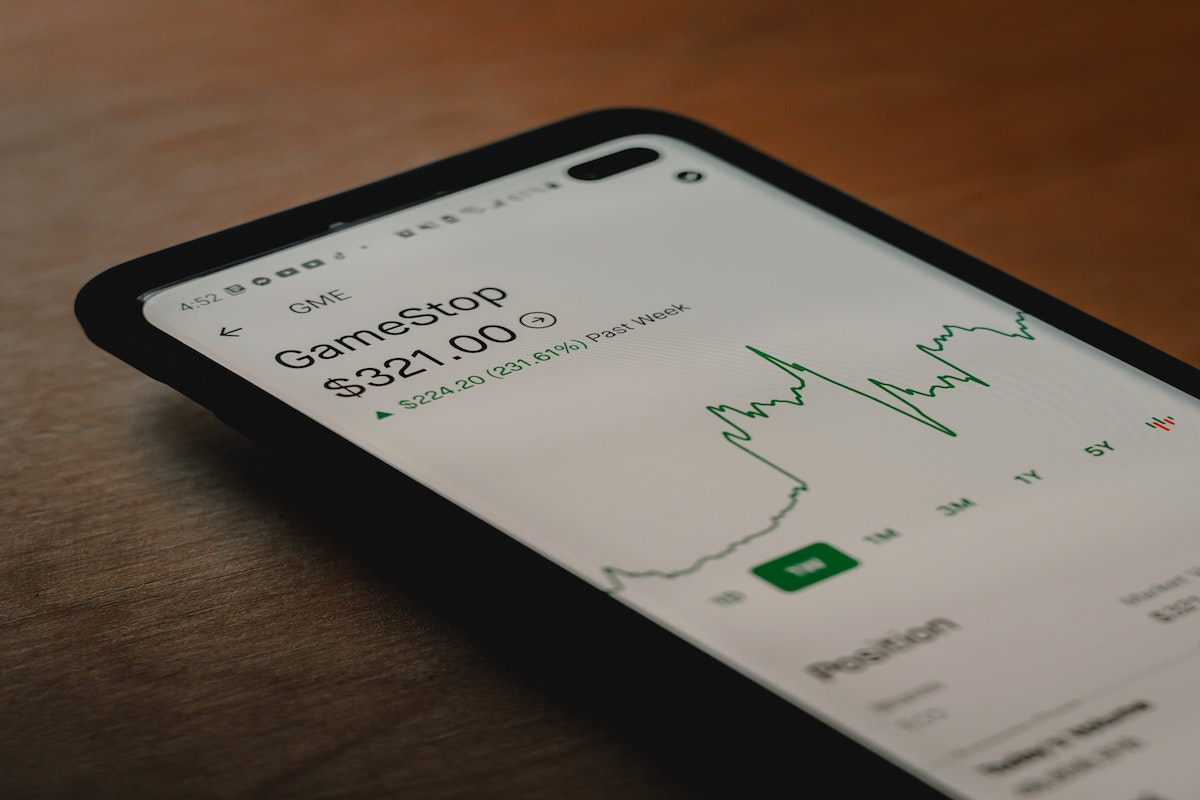AN ARTICLE BY LADENBURG THALMANN
Three weeks ago, GameStop (ticker: GME) was known as a store that millennials may have visited in their childhood to shop for video gaming consoles and accessories. That quickly changed when the price of GameStop stock surged more than 1,600% from January 11th to January 27th (source: Bloomberg) dominating the headlines and causing many market participants to ask the question “what in the world is going on?”. The thundering rise in GameStop’s stock can primarily be attributed to an underlying battle between small investors and hedge funds. Since we have fielded many questions on this story, we thought it may be best to provide some context around what has happened so far and how we think it relates to some of the bigger themes taking place in the market and economy today.
Over the past few months, smaller investors have worked to push up the value of GameStop shares. This pool of smaller investors consists of Reddit users who follow the forum “r/WallStreetBets”, as well as users of investment apps such as Robinhood. On January 11th GameStop appointed Chewy.com founder, Ryan Cohen, and two other e-commerce veterans to its board to increase digital sales. This drove the shares of GameStop stock higher as many of the small investors who took a liking to the stock believed the changes would be good for the company over time. It is worthy to note that stimulus checks provided by the government, as we saw in 2020, may be encouraging speculative trading by retail investors. According to software and data aggregation company Envestnet Yodlee, securities trading was among the most common uses for government stimulus checks in April of 2020 in nearly every income bracket (source: CNBC).
Prior to the board appointments at GameStop, the company was struggling, as the pandemic had taken a toll on its brick-and-mortar sales. This enticed investors, such as Hedge Funds, to try to profit from GameStop’s failing business model. Hedge funds seek to profit from a failing company by shorting that company’s stock. Typically, investors follow the “buy low, sell high” approach if they believe a stock will go up. Short selling is just the opposite. Shorting is done by borrowing and selling a stock high, in anticipation of it falling so it can be bought back at a lower price and profited from. Major hedge funds such as Melvin Capital and Citron Capital held short positions in GameStop prior to the stock’s ascension on January 11th. “Short interest” is the number of shares that have been sold short but have not yet been covered or closed out. The “short interest” of GameStop stock was at 70.9 million shares as of January 12th according to data from S3 Partners.
As smaller investors gobbled up shares of GameStop stock, bidding the price up higher, Melvin Capital and Citron Capital began to watch the profits from their short positions disappear. This forced these hedge funds to close most of their short positions and buy shares at a higher price, only compounding the issue further. This scenario is called a “short squeeze”. Also fueling the fire was a tweet from Tesla’s CEO, Elon Musk, on January 26th which read “Gamestonk!!” along with a link to Reddit’s Wallstreetbets stock trading discussion group, further increasing interest in the stock and pushing the price higher. Given the whirlwind of activity, on January 28th, the investment trading app Robinhood, among other interactive brokers, made the unpopular decision to halt the trading of GameStop shares on their platforms. GameStop shares fell -44.29% that day, (source: Bloomberg) with the delisting of GME on trading platforms such as Robinhood believed to be the primary cause of the stock’s decline. The entire situation has now invited interest from Congress as well as the Securities and Exchange Commission (SEC). What started as a harmless bet on a struggling video game retailer, has now become a war between amateur investors and some of Wall Street’s brightest minds.
As we watch this all unfold, it shines a light on some of the larger themes present today. The first is that exponential advancement in technology is making it easier for people to communicate, gain access to information and act on that information. As an example, the average daily volume of the largest e-brokers in December was 6.6 million shares, a record. In January, average daily trades are at 8.1 million, a 23% increase (Source: CNBC). The second is that any future stimulus checks could have an impact on individual stock price movements, particularly smaller-sized stocks that may be susceptible to higher levels of volatility. This at times could have a ripple effect on the overall market. Lastly, diversifying your portfolio is always a great implicit risk management tool to help mitigate some of the extreme price movements investors may experience in single-stock positions. In closing, the recent GameStop frenzy highlights some of the powerful secular trends that are shaping the way we live and work, as well as the complexity of financial markets today. In times like these, we are honored to be your source of trusted guidance and education to help you cut through the noise, understand the current environment, and help you navigate your way to financial freedom.
THIS ARTICLE WAS WRITTEN BY ONE OF OUR AFFILIATE COMPANIES, LADENBURG THALMANN.
DISCLOSURES:
The opinions expressed herein are those of Ladenburg Thalmann Asset Management, Inc. (“LTAM”) and are subject to change. The information contained in this presentation has been taken from trade and statistical services and other sources, which we believe to be reliable. We do not guarantee that this information is accurate or complete and it should not be relied upon as such.
This presentation is for informational and illustrative purposes only and is not intended to meet the objectives or requirements of any specific individual or account. Past performance is not an indicator of future results. An investor should assess his/her own investment needs based on his/her own financial circumstances and investment objectives.
Any indices and other financial benchmarks shown or referenced are provided for illustrative purposes only, indices are unmanaged, and investors cannot invest directly in an index. Index returns do not reflect any fees, expenses, or sales charges. Returns are based on price only and do not include dividends. The information and views expressed are given as of the date of the writing and are subject to change. This information is not to be used or considered as an offer or solicitation.
LTAM is a SEC Registered Investment Adviser under the Investment Advisers Act. LTAM provides investment advisory services and may be included in advisory platforms sponsored or administered by affiliates or third-parties. LTAM does not provide tax or legal advice. Please consult your tax advisor or attorney. For additional information, please see the Program Disclosure Brochure or ADV Part II for full details, which are available upon request or please visit www.adviserinfo.sec.gov.
Securities offered through Triad Advisors, LLC, member FINRA/SPIC. Advisory services offered through TriCapital Wealth Management, Inc. TriCapital Wealth Management, Inc. is not affiliated with Triad Advisors, LLC.




